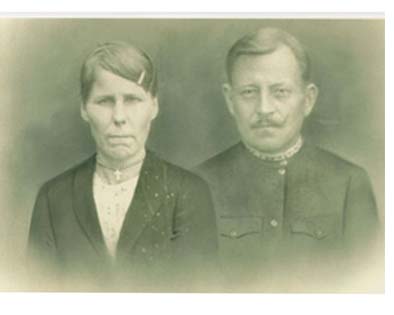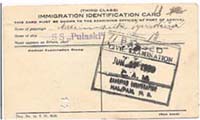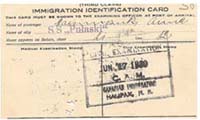Sobey Wall of Honour
Column
121
Row
10
Epic struggles and enormous challenges faced Andrew and Anna Maksymchuk as they struggled to scrounge a living and raise a family under the oppressive regime of Soviet Ukraine.
By 1930, after ten years of farming under ever-worsening conditions, Andrew had endured enough. He had heard about the promise of free land in Canada. His pioneering spirit stirred within him, yearning for a free life, new dreams and brighter visions. His decision undoubtedly spared his family from Stalin's famine genocide of the Ukrainian people. By 1933 it is estimated that seven million Ukrainians had died under Soviet rule.
In response to a massive publicity campaign by the Canadian government, thousands of settlers were flocking to Canada's prairies to establish themselves as farmers. They came to seize the opportunity for "free" ($10.00 for 160 acres) homestead land and to leave behind excessive government control, compulsory military service and other obstacles for a freer life for their families. Thirty-nine year old Andrew, his wife, Anna, age 36, along with their four sons, Thomas, 13, Peter, 10, Metro, 8, and Victor, 3, were amongst the second group of Ukrainian settlers to come to Canada. The first had arrived in 1891.
On June 6, 1930, the Maksymchuk family left their homeland aboard the ship SS Pulaski of the Baltic American Lines at Port Danzig (Gdansk, Poland) and set sail for Canada. They arrived at the now historic Pier 21 in Halifax, Nova Scotia, on June 17, 1930 and boarded a train which took them to Pelly, Saskatchewan.
From the station it was a horse-drawn wagon ride to the newly purchased homestead. There, in what appeared to be the middle of nowhere, the driver of the buckboard stopped. He pointed out a wooden stake in the ground marked SE 28-32-30 W1. The letters and numbers corresponded with those on the small piece of paper held in Andrew's hand - the "Maksymchuk" property! The wagon driver helped to unload the family's meagre possessions then drove away.
One can only visualize the six of them standing there in silence looking out across the land that was theirs. No one else was in sight, only swamp, rock, and spruce and poplar trees. We can only imagine the feelings of anxiety welling up within the two adults while the children stood confused. But there was no turning back. Hardship had always been their way of life. They would have to make a go of it.
From the first spade of earth turned and the first blows of their axes, Andrew and Anna were fashioning a new way of life for themselves and, ultimately, for future generations of their family. They, along with other Ukrainian immigrants, would contribute not only to the settlement of a large portion of the Prairies, but to turning the Prairies into Canada's breadbasket. They would also become part of a mosaic of cultures, blending across a vast land, identified as being truly Canadian and envied throughout the world.


